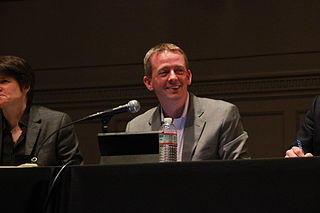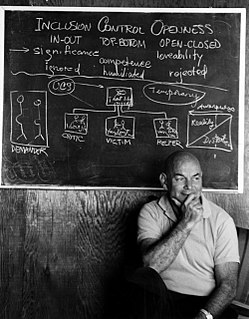A Quote by David D. Burns
People who expect to feel guilty tend to be more sympathetic, to put themselves into other people's shoes, to think about the consequences of their behaviour before acting, and to treasure their morals. As a result they are less prone to lie, cheat or behave immorally when they conduct a business deal or spot an opportunity to make money, studies suggest. They are also likely to make better employees because people who think less about the future results of their actions are more likely to be late, to steal or to be rude to clients.
Quote Topics
About
Acting
Actions
Also
Because
Before
Behave
Behaviour
Better
Business
Cheat
Clients
Conduct
Consequences
Deal
Employees
Expect
Feel
Future
Guilty
Late
Less
Lie
Likely
Make
Money
Morals
More
Opportunity
Other
People
Prone
Put
Result
Results
Rude
Shoes
Spot
Steal
Studies
Suggest
Sympathetic
Tend
Themselves
Think
Treasure
Related Quotes
What I like to do with music is make people feel better. Make people realize that all humans have the same problems, more or less. A lot of people deal with the same thing. A lot of times people think problems are specific to them and they if they hear a song about a problem common to them, they feel good because they know that someone else has gone through it.
The idea of confidence, of the emotions of the population, is an incredibly important one in economics. John Maynard Keynes called it 'animal spirit.' And if people are feeling generally good about the future, they're more likely to spend money, to start new companies; companies are more likely to hire people, make investments.
Since becoming a mother, I'd say it's more so affected my general outlook on things. I'm less worried about everything. Less scared to make those numbers that people think are standard or less scared to create something that maybe I don't think people are going to like, because it's all about if I like it. I need to be happy.
People who believe that they are going to be excommunicated and shamed, or whatever other dark things may happen to them, are much less likely to enter open, loving relationships. And they are also much less likely to have the self-esteem that is required to be monogamous and loving. And in consequence, they are much less likely to create families.
How I feel about and behave toward myself is the basic determinant of most of my behavior. If I improve my self-regard, I will find that dozens of behaviors change automatically. If, for example, I increase my feelings of self-competence, I will probably be less defensive, less angered by criticism, less devastated if I do not get a raise, less anxious when I come to work, better able to make decisions, and more able to appreciate and praise other people.
People were actually 6 times more likely to buy a jar of jam if they had encountered 6 than if they encountered 24, so what we learned from this study was that while people were more attracted to having more options, that's what sort of got them in the door or got them to think about jam, when it came to choosing time they were actually less likely to make a choice if they had more to choose from than if they had fewer to choose from.
Many young women are less whole and androgynous than they were at age ten. They are more appearance-conscious and sex-conscious. They are quieter, more fearful of holding strong opinions, more careful what they say and less honest. They are more likely to second-guess themselves and to be self-critical. They are bigger worriers and more effective people pleasers. They are less likely to play sports, love math and science and plan on being president. They hide their intelligence. Many must fight for years to regain all the territory they lost.
Money is very difficult to think about. So, we think about money as the opportunity cost of money. So, we at some point went to a Toyota dealership and we asked people, what will you not be able to do in the future if you bought this Toyota? Now, you would expect people to have an answer. But people were kind of shocked by the question. They never thought about it before. So, the most we got was people said, "Well, if I can't buy this Toyota, if I buy this Toyota, I can't buy a Honda." What is this thing? What is this value of price? Very hard to think about it.






































